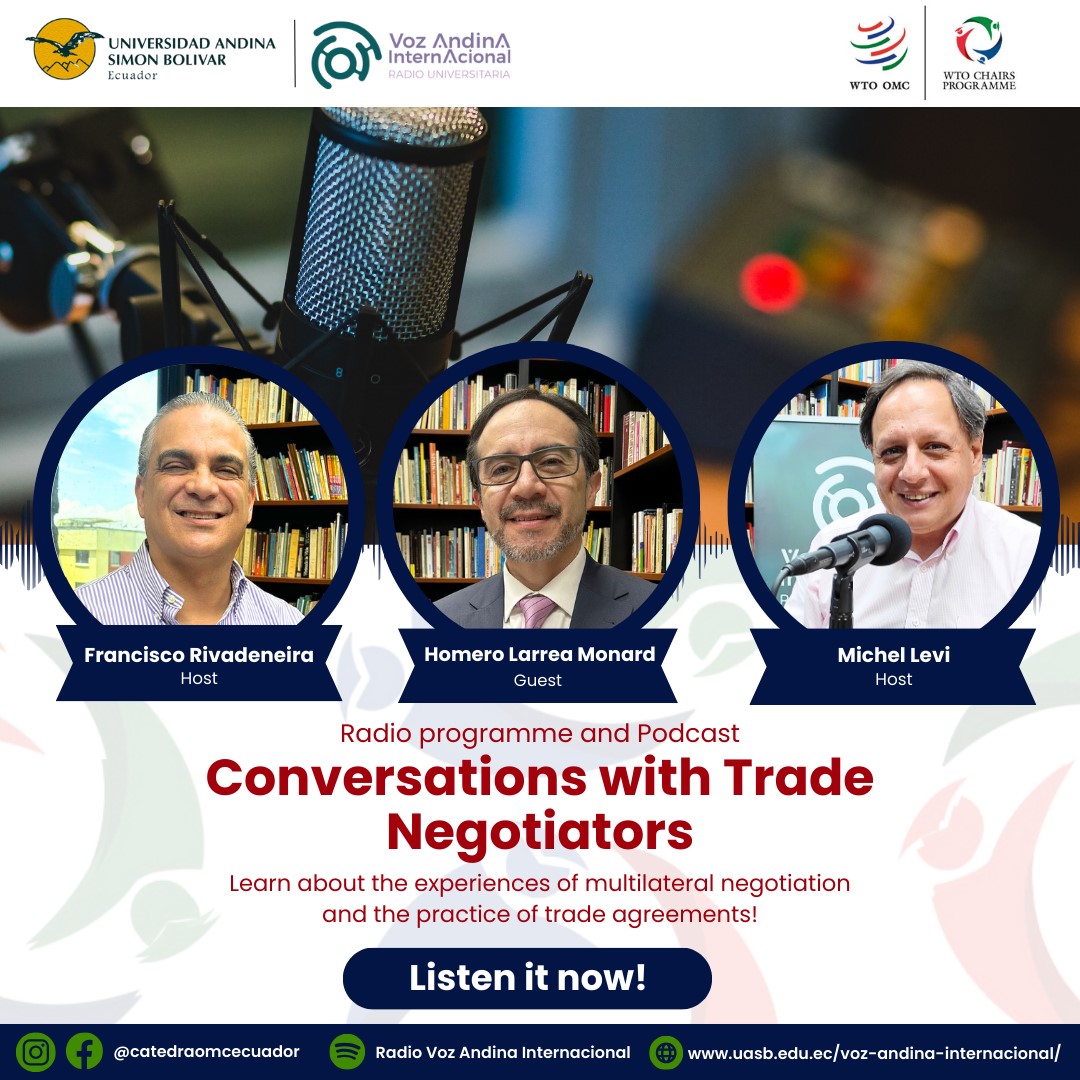Conversations with Trade Negotiators. Episode 8

WTO Chair - Ecuador, in partnership with the Centro Andino de Estudios Internacionales and Radio Voz Andina Internacional at the Universidad Andina Simón Bolívar - Sede Ecuador invite you to listen to the eighth episode of "Conversations with Trade Negotiators".
This time, the distinguished guest is Homero Larrea Monard, Deputy Minister of Foreign Trade.
Join the conversation and learn about the Homero Larrea Monard's experience!
Recording of this episode of #ConversationsWithTradeNegotiators is available on Spotify, on Radio Voz Andina Internacional, on YouTube, and on Ecuador WTO Chair
